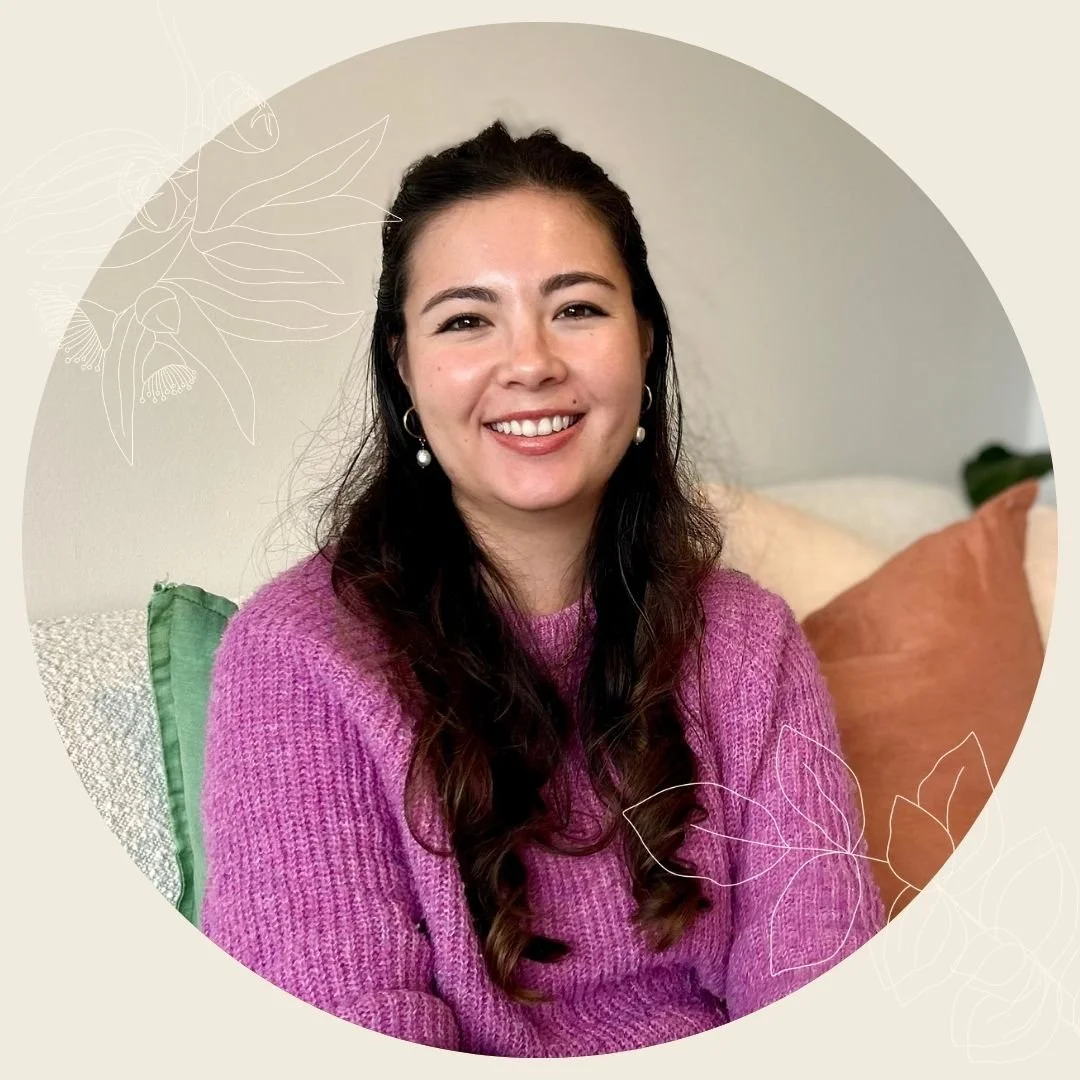
Teen Counselling
Teen Counselling Services in Perth
Teen counselling is designed to support young people aged 12-18 as they navigate emotional, psychological, and social challenges.
By providing a safe and supportive space, adolescent counselling fosters self-awareness, resilience, and personal growth while developing a trusted and safe relationship with their therapist.
Our counselling supports teenagers with:
Resilience building and coping skills
Emotional regulation
Anxiety or depression symptoms,
School stress and big decisions
Family conflicts and dynamics
Changing friendships
Identify formation and exploration
Body image and self-esteem concerns.
Supporting Teenagers Through Challenging Times
Teen counselling is beneficial for adolescents who are experiencing difficulties such as:
Anxiety and depression
Peer pressure and bullying
Family conflicts
Low self-esteem and body image concerns
Academic stress and performance anxiety
Social challenges and isolation
Identity exploration
Boundaries and confidence-building
Navigating hard conversations
Navigating and supporting ADHD.
This therapy is ideal for adolescents who are open to discussing their feelings and seeking personal growth, and want to attend counselling sessions for themselves.
We love to support Teen clients with the following challenges:
-
You might feel like you have to change parts of yourself just to be accepted: at school, online, or even within your friend group. That pressure to fit in can feel exhausting, and sometimes it leaves you questioning whether you’re truly enough just as you are. You may struggle to be your authentic self, explore and discover who you are, while still staying close to your friends.
-
It’s easy to fall into the habit of comparing yourself to others on social media. Even when you know those images are edited or filtered, they can still make you feel like you should look or be a certain way. That constant comparison can really hurt the way you see yourself and your body, and make you feel self-conscious and not comfortable in your own skin.
-
You might be trying really hard to do well in school, but the pressure to get good grades and plan for your future and make big life decisions can feel overwhelming. When things don’t go as planned, it can lead to anxiety, stress, or even feeling like you’re failing, not just in school, but as a person. You may feel left behind or like you can’t keep up to find your strengths.
-
Maybe things at home feel confusing, tense, or just heavy. Whether there’s conflict, a big change like divorce, or you just feel misunderstood, it’s okay to want someone to talk to. You deserve support that helps you make sense of what’s going on and how it’s affecting you. You’re in a phase where you’re trying to find space from your parents, develop your own identity and have some space to be with your friends, and different families and parents navigate that differently.
-
Your friendships probably matter a lot to you, and that’s why it hurts so much when there’s drama, miscommunication, or when you feel left out or bullied. Navigating friend groups can be stressful and even make you doubt yourself or question your place in them. You may worry you can’t trust them or that your friendship circles are changing all the time.
-
You might find yourself being your own worst critic. Maybe you don’t like how you look, how you act, or just don’t feel good enough, no matter what anyone else says. That kind of self-doubt can sneak into so many areas of your life, and it’s really hard to carry alone. Low self-esteem can especially show up in friendships, relationships and standing up for yourself.
-
If your mind feels like it’s always racing, worrying about the future, replaying what you said, or imagining worst-case scenarios, you’re not alone. Anxiety can show up in ways that make it hard to sleep, concentrate, or even breathe, and it can feel like it's taking over your life. You may feel like you’re physically present but your mind is always elsewhere.
-
There might be times when you feel down, disconnected, or just kind of numb, like nothing really matters anymore. Maybe the things that used to make you happy don’t feel the same, and it’s hard to explain why. That’s not something you have to go through on your own.
Whatever you’re going through, your feelings are valid. You don’t have to have it all figured out to reach out for help. Counselling is a safe, non-judgmental space where you can talk, be heard, and start to feel more like yourself again. You're not alone—and things can get better.

Developing skills for a lifetime of self-care, resilience and confidence
Our Teen Counsellors
Adapting and processing recent ADHD diagnosis
Support for peer or relationship struggles
Family issues challenges such as parental separation, conflict in family dynamics or sibling challenges.
Managing anxiety and overthinking
Emotional regulation for mood swings, low mood or emotional overwhelm
Identity exploration and building to connect to your authentic self
Boundaries, self-esteem and self-confidence building
Academic pressure, performance anxiety, and managing expectations
Empowerment and inner strength building
Registered Counsellor
Justyna Ptak-Broers
Britt Tyrrell
Build confidence in their authentic selves amidst peer and social pressures.
Address online comparison and foster a positive self-image and body confidence.
Support school stress, performance anxiety, and career decision-making.
Navigate family dynamics, conflict, and changes like separation or loss.
Create healthy communication and boundaries with parents.
Manage friendship challenges, bullying, social shifts, and isolation.
Empower self-esteem through self-compassion and challenging negative self-talk.
Teach practical tools for anxiety, worry, racing thoughts, and overwhelm.
Registered Counsellor
Viola Prinz
Gaining insight into their emotions and learning how to express their inner experiences
Developing self-compassion and building a kinder relationship with themselves
Exploring identity and making sense of who they are during times of transition
Navigating peer and family relationships with more awareness and confidence
Challenging unhelpful thought patterns and building healthier ways of thinking
Feeling safer to open up and seek support when needed
Reconnecting with hope and creating a more meaningful path forward
Registered Psychologist
Your Teen’s Counselling Experience
Teen counselling involves structured conversations and therapeutic techniques tailored to the unique needs of teenagers. Our trained therapists are experienced with helping adolescents explore their thoughts, emotions, and experiences in a safe and non-judgmental environment.
Sessions may incorporate cognitive-behavioural strategies, mindfulness practices, elements of arts therapy, practical exercises and emotion-focused interventions to support positive mental health outcomes.
The goal is to equip young people with tools to manage stress, build healthy relationships, and enhance self-understanding, while allowing their individual personality to shine and for their confidence to grow.
By building insight into their emotional world, adolescents will learn to support themselves through their hard times and have tools to rely on.
Getting Comfortable in Session
The therapist engages the young person in open discussions about their thoughts, feelings, and concerns. Depending on the individual's needs, the session may involve:
Identifying and processing emotions
Developing problem-solving skills
Exploring family and peer relationships
Learning stress management techniques
Addressing academic pressures and career aspirations
Practical activities and tools to help make sense of what we are exploring in therapy, such as therapy cards, drawings, diagrams, activities, etc.
We know, talking can be hard for teens!
Sessions are tailored to the adolescent’s progress, and the number of sessions required varies based on individual needs.
At times, parents will be invited in for a portion of the session or for full sessions.
The Research Behind Teen Counselling
Teen counselling is supported by extensive research and is recognised as an effective intervention for various mental health concerns. It incorporates evidence-based methods such as Cognitive Behavioural Therapy (CBT), Emotion-Focused, solution-focused and mindfulness-based interventions. Studies indicate that counselling for teens significantly improves emotional resilience, coping skills, and overall mental well-being in young people.
Finding the Right Support for Your Teen
Teen counselling at our Practice is not suited for clients who;
Are experiencing acute or complex mental health challenges that require clinical or psychological support.
School avoidance, physical violence or aggression.
Are in immediate crisis, engaging in high-risk behaviours or thoughts and need emergency support.
Teens who do not want to engage in counselling at this time.
In such cases, a GP can recommend alternative support and referral options.
Contact Us
We’re so excited to welcome you as a treasured client of our bespoke therapy practice in Cottesloe & Fremantle.
Please complete the form below and I’ll get back to you as soon as possible.
Please note, we are a full-fee paying private practice where we support clients long term through excellent contemporary therapy.
We are unable to provide emergency or crisis services and do not have a reception phone number.
If you are experiencing a mental health emergency, please call 00 or the Mental Health Emergency Response Line on 1300 555 788.
Frequently Asked Questions ✨
Frequently Asked Questions ✨
-
In a counselling session, the therapist creates a safe and supportive space where the adolescent can express their thoughts and emotions freely. The session may involve structured conversations, problem-solving exercises, and skill-building activities tailored to their needs.
-
The duration of therapy varies depending on the individual. Some adolescents may experience noticeable improvements after a few sessions, while others may benefit from ongoing support over several months. The more the client is engaged and practices their tools and strategies outside the session, the more likely they are to see the benefits. A supportive and nourishing family environment further supports adolescents’ growth.
-
Yes! We love to include parents as much as possible, with the consent of the adolescent. If the adolescent requests a parent or guardian to be present for their first few sessions, we’ll follow their lead, while encouraging them to work towards having their own individual private sessions. Parents can be invited into portions of the sessions, at the request of the adolescent, to update the parent or navigate conversations. We believe a collaborative approach is best, and happily involve parents and family members, within the scheduled appointment times, to nurture the adolescent and family health and wellbeing together. This may also include sharing strategies and techniques the adolescent is working on, with the whole family for support.
-
During 1:1 sessions, what is shared between the adolescent client and the therapist is confidential, unless there are reasons to break confidentiality due to safety or risk concerns, in which case, parents will be notified to create safety and support for the adolescent.
Any information that is shared with parents is always discussed with the adolescent client first and concerns are explored
-
While many teenagers benefit from counselling, it may not be suitable for those with severe psychiatric conditions requiring medical treatment or adolescents who don’t wish to engage in counselling at this time. A consultation with a mental health professional can help determine the best approach, as well as setting priorities for care and assessment, such as addressing ADHD or school avoidance challenges first.
-
Counselling supports young people dealing with anxiety, depression, family conflicts, school stress, social difficulties, and self-esteem concerns. It provides coping strategies and emotional support tailored to their developmental stage.
-
Adolescent counselling is specifically designed to address the developmental, emotional, and social challenges unique to teenagers. It integrates various therapeutic techniques to provide a holistic approach to mental well-being. It takes a more informal and practical approach, as adolescents can find it harder to articulate their thoughts and feelings and take longer to build rapport with their therapist.







